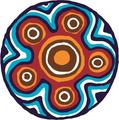Year 6 Term 3 Overviews

Term 3 has arrived, and the Year 6 team is excited for another exciting term of learning. We appreciate your continued support in keeping students motivated and prepared for their educational journey.
Reading
This term, students will focus on close reading strategies to analyse a range of non-fiction texts, including information reports, news articles, and explanation texts. They will learn to scrutinise how texts present information, identify key facts, and understand the author’s purpose and perspective. By examining these texts in detail, students will enhance their ability to critically evaluate and interpret information. These skills will also be integrated into their writing, helping them construct clear and informative texts.
Writing
In Writing this term, students will focus on crafting explanation texts. They will use cause-and-effect language to clearly explain how and why things happen, developing their ability to convey complex ideas in a structured manner. Students will also work on information reports to document the experiments they conduct as part of their unit of inquiry. These reports will involve detailing their experimental processes, findings, and conclusions, allowing students to apply their writing skills in a practical context. This focus will help students enhance their technical writing and critical thinking abilities.
Numeracy
This term, students will solve problems involving the addition and subtraction of fractions and decimals and estimate solutions to problems. They will find fractions, decimals and percentages of quantities, including calculating discounts efficiently. Students will also add and subtract decimals, and multiply and divide decimals by powers of 10, using estimation to check their answers. In mapping, students will locate points in the Cartesian plane and describe changes to coordinates. For Chance and Data, students will describe probabilities using fractions, decimals and percentages, conduct chance experiments, and use critical thinking to analyse data representations from different sources.
Inquiry
This term, our inquiry focus shifts to science, with a deep dive into the topic of energy. Students will explore the various forms of energy, how it is used, produced, harnessed, and stored. They will investigate the differences between renewable and non-renewable energy sources and consider the ethical implications of sustainable energy use. Throughout this unit, students will also examine how technology is used to solve problems and work towards designing their own solutions for challenges they identify. This hands-on approach will allow them to apply their learning in practical and innovative ways.
SEL
This term, our Social and Emotional Learning will concentrate on the theme of resilience and teamwork. Students will define resilience and identify personal attributes essential for developing it. They will practice gratitude, empathy, and mindfulness, integrating these practices into their daily lives. Additionally, students will work on contributing effectively to groups and teams, identifying the characteristics of an effective team, and understanding various roles within a team, including leadership. They will also evaluate both their own and their team’s performance in different roles, fostering a deeper understanding of teamwork and personal growth.
General Reminders:
Wear runners on PE days.
Please check Compass and Google Classroom regularly, as these will be the main portals that we (the teachers) communicate with you. Compass is also the place where you will be able to access your child’s goals and achievements. They are released every five weeks and tell you what your child has achieved in Reading, Writing, Numeracy and Inquiry/Social, as well as their next steps (goals) and how you can support them. .
If your child will be having an extended absence/holiday, this must be communicated with the school and discussed with leadership.
Homework:
Reading: Every night for a minimum of 30-60 mins, with follow up questions relating to the book.
